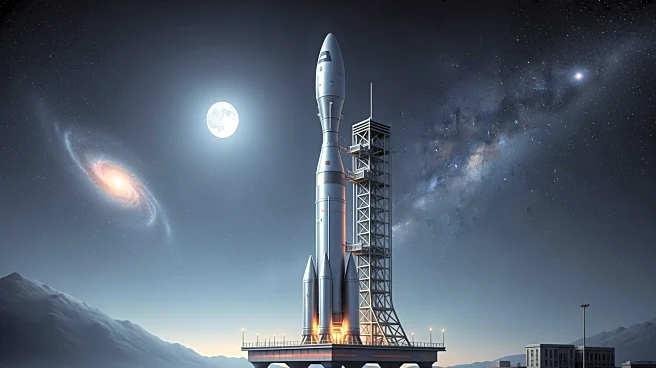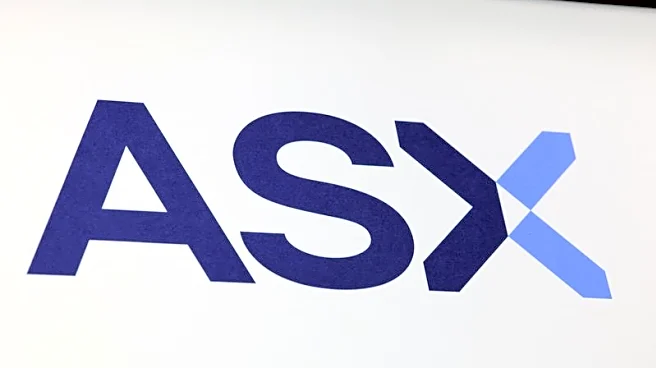What's Happening?
Blue Origin is preparing for the second flight of its heavy-lift New Glenn rocket, targeting November 9 for launch from Cape Canaveral Space Force Station, Florida. The rocket will carry NASA's ESCAPADE mission to Mars, with Blue Origin charging NASA approximately
$20 million for the launch. However, the mission has faced delays due to issues in developing New Glenn, and the rocket has not yet been certified by NASA or the US Space Force. The launch will occur outside the usual interplanetary window, requiring a unique trajectory to reach Mars by 2027.
Why It's Important?
The launch of New Glenn represents a significant milestone for Blue Origin, as it seeks to establish itself as a reliable provider of heavy-lift space missions. The successful deployment of NASA's ESCAPADE mission could enhance Blue Origin's reputation and competitiveness in the space industry, potentially challenging established players like SpaceX and United Launch Alliance. The mission's success is crucial for NASA's interplanetary exploration goals, and the cost-effective launch could set a precedent for future collaborations between NASA and private space companies.
What's Next?
Following the launch, Blue Origin will need to ensure the successful deployment and trajectory of the ESCAPADE mission to Mars. The company will likely focus on obtaining certification for New Glenn from NASA and the US Space Force to secure future contracts. The outcome of this mission could influence NASA's decision-making regarding future partnerships and launch providers.
Beyond the Headlines
The development and launch of New Glenn highlight the growing role of private companies in space exploration, reflecting a shift towards commercial partnerships in achieving national and international space objectives. This trend may lead to increased innovation and competition, driving advancements in space technology and exploration capabilities.


















